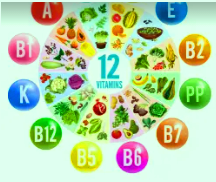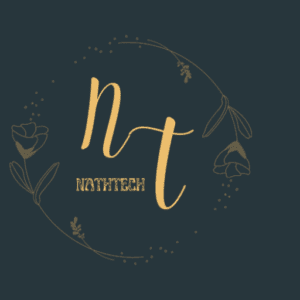NathTech’s Guide ,
Introduction :
Maintaining optimal health is a multifaceted endeavor that requires a balanced diet rich in essential minerals and vitamins. These nutrients are vital for the body’s various functions, from immune support to bone health and energy production. In this article, presented by NathTech, we will explore the essential minerals and vitamins necessary for different age groups, examining the sources from both vegetarian (veg) and non-vegetarian (non-veg) diets. We’ll also discuss the ease of obtaining these nutrients, the potential need for medical supplementation, the side effects of using pills, and provide additional resources for maintaining a healthy life.

Essential Minerals and Vitamins for Optimal Health
Vitamins:
- Vitamin A:
- Sources:
- Vegetarian: Carrots, sweet potatoes, spinach, and kale.
- Non-Vegetarian: Liver, fish oil, and dairy products.
- Benefits: Essential for vision, immune function, and skin health.
- Sources:
- Vitamin C:
- Sources:
- Vegetarian: Citrus fruits, strawberries, bell peppers, and broccoli.
- Non-Vegetarian: While primarily found in plant sources, certain animal products fortified with vitamin C can be beneficial.
- Benefits: Supports the immune system, promotes skin health, and aids in iron absorption.
- Sources:
- Vitamin D:
- Sources:
- Vegetarian: Fortified plant milks, mushrooms exposed to sunlight.
- Non-Vegetarian: Fatty fish, egg yolks, and fortified dairy products.
- Benefits: Essential for bone health, immune function, and mood regulation.
- Sources:
- Vitamin E:
- Sources:
- Vegetarian: Nuts, seeds, spinach, and broccoli.
- Non-Vegetarian: Certain fortified foods and supplements.
- Benefits: Acts as an antioxidant, protecting cells from damage.
- Sources:
- Vitamin K:
- Sources:
- Vegetarian: Leafy green vegetables like kale, spinach, and broccoli.
- Non-Vegetarian: Liver and other animal products.
- Benefits: Crucial for blood clotting and bone health.
- Sources:
Minerals:
- Calcium:
- Sources:
- Vegetarian: Leafy greens, almonds, tofu, and fortified plant milks.
- Non-Vegetarian: Dairy products, sardines, and fortified foods.
- Benefits: Essential for bone and teeth health, muscle function, and nerve signaling.
- Sources:
- Iron:
- Sources:
- Vegetarian: Lentils, chickpeas, spinach, and fortified cereals.
- Non-Vegetarian: Red meat, poultry, and fish.
- Benefits: Important for hemoglobin formation and oxygen transport in the blood.
- Sources:
- Magnesium:
- Sources:
- Vegetarian: Nuts, seeds, whole grains, and leafy greens.
- Non-Vegetarian: Fish, meat, and dairy products.
- Benefits: Supports muscle and nerve function, energy production, and bone health.
- Sources:
- Zinc:
- Sources:
- Vegetarian: Legumes, seeds, nuts, and whole grains.
- Non-Vegetarian: Meat, shellfish, and dairy products.
- Benefits: Vital for immune function, wound healing, and DNA synthesis.
- Sources:
- Potassium:
- Sources:
- Vegetarian: Bananas, sweet potatoes, beans, and spinach.
- Non-Vegetarian: Fish, meat, and dairy products.
- Benefits: Essential for maintaining proper heart function and muscle contraction.
- Sources:
Age-Specific Nutritional Needs
Children:
- Important Nutrients: Calcium, Vitamin D, Iron, Vitamin A, and Vitamin C.
- Vegetarian Sources: Fortified plant milks, leafy greens, legumes, and colorful fruits.
- Non-Vegetarian Sources: Dairy products, lean meats, and eggs.
- Ease: Children’s multivitamins can help fill nutritional gaps, but a varied diet is key.
Adults:
- Important Nutrients: Magnesium, Vitamin D, Calcium, Iron, and B Vitamins.
- Vegetarian Sources: Whole grains, fortified plant milks, leafy greens, and nuts.
- Non-Vegetarian Sources: Lean meats, fish, dairy products, and eggs.
- Ease: Balanced meals with a variety of food groups ensure adequate intake; supplements can be used if needed.
Seniors:
- Important Nutrients: Vitamin D, Calcium, Vitamin B12, Magnesium, and Vitamin K.
- Vegetarian Sources: Fortified plant milks, leafy greens, fortified cereals, and nuts.
- Non-Vegetarian Sources: Dairy products, fish, lean meats, and eggs.
- Ease: Seniors may need fortified foods or supplements, especially for Vitamin B12 and Vitamin D, due to absorption issues.
Supplementation and Medical Advice
When Supplements are Needed:
- Deficiency: Blood tests can identify deficiencies that may require supplements.
- Dietary Restrictions: Vegans and vegetarians might need B12, iron, and omega-3 supplements.
- Health Conditions: Certain conditions may impair nutrient absorption, necessitating supplements.
Side Effects of Using Pills:
- Overdose Risk: Excessive intake of fat-soluble vitamins (A, D, E, K) can be toxic.
- Interactions: Supplements can interact with medications; consult a healthcare provider.
- Digestive Issues: Some supplements may cause nausea, constipation, or diarrhea.
Quick Solutions for Nutrient Intake:
- Smoothies: Blend fruits, vegetables, and protein powders for a nutrient-dense meal.
- Meal Planning: Plan balanced meals ahead to ensure a variety of nutrients.
- Fortified Foods: Choose cereals, plant milks, and other foods fortified with essential vitamins and minerals.
Additional Resources for a Healthy Life:
- Regular Exercise: Supports overall health, weight management, and cardiovascular health.
- Adequate Sleep: Essential for recovery, immune function, and mental health.
- Stress Management: Practices like yoga, meditation, and mindfulness can improve well-being.
- Hydration: Drinking enough water is crucial for all bodily functions.
